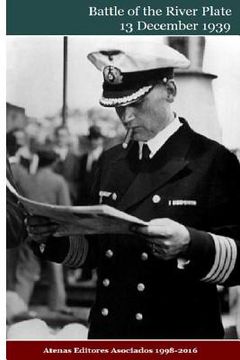Reseña del libro "Battle of the River Plate 13 December 1939 (en Inglés)"
The Anglo-German Naval Agreement (A.G.N.A) of June 18, 1935 was a bilateral agreement between the United Kingdom and German Reich regulating the size of the Kriegsmarine in relation to the Royal Navy. The A.G.N.A fixed a ratio whereby the total tonnage of the Kriegsmarine was to be 35% of the total tonnage of the Royal Navy on a permanent basis. It was registered in League of Nations Treaty Series on July 12, 1935. The agreement was renounced by Adolf Hitler on April 28, 1939. The A.G.N.A was an ambitious attempt on the part of both London and Berlin to reach better relations, but it ultimately foundered because of conflicting expectations between the two states. For the Germans, the A.G.N.A. was intended to mark the beginning of an Anglo-German alliance against France and the Soviet Union, whereas for the British, the A.G.N.A. was to be the beginning of a series of arms limitation agreements that were made to limit German expansionism. The A.G.N.A was highly controversial, both at the time and since, because the 35:100 tonnage ratio allowed Germany the right to build a Navy beyond the limits set by the Treaty of Versailles, and the British had made the agreement without consulting France or Italy first. Part IV of the 1919 Treaty of Versailles had imposed severe restrictions on the size and capacities on the armed forces of the Reich. In regards to the Navy, Germany was allowed no submarines, no naval aviation, and no battleships; the total naval forces allowed to the Germans were six heavy cruisers of no more than 10,000 tons displacement, six light cruisers of no more than 6,000 tons displacement, 12 destroyers of no more than 800 tonnes displacement and 12 torpedo boats. Through the interwar years, German opinion had protested these restrictions as harsh and unjust, and demanded that either all of the other states of Europe disarm down to German levels, or alternatively, Germany be allowed to rearm to the level of all the other European states. In Britain, where after 1919 there was much guilt over the alleged excessively harsh terms of Versailles, the German claim to "equality" in armaments often met with considerable sympathy.

